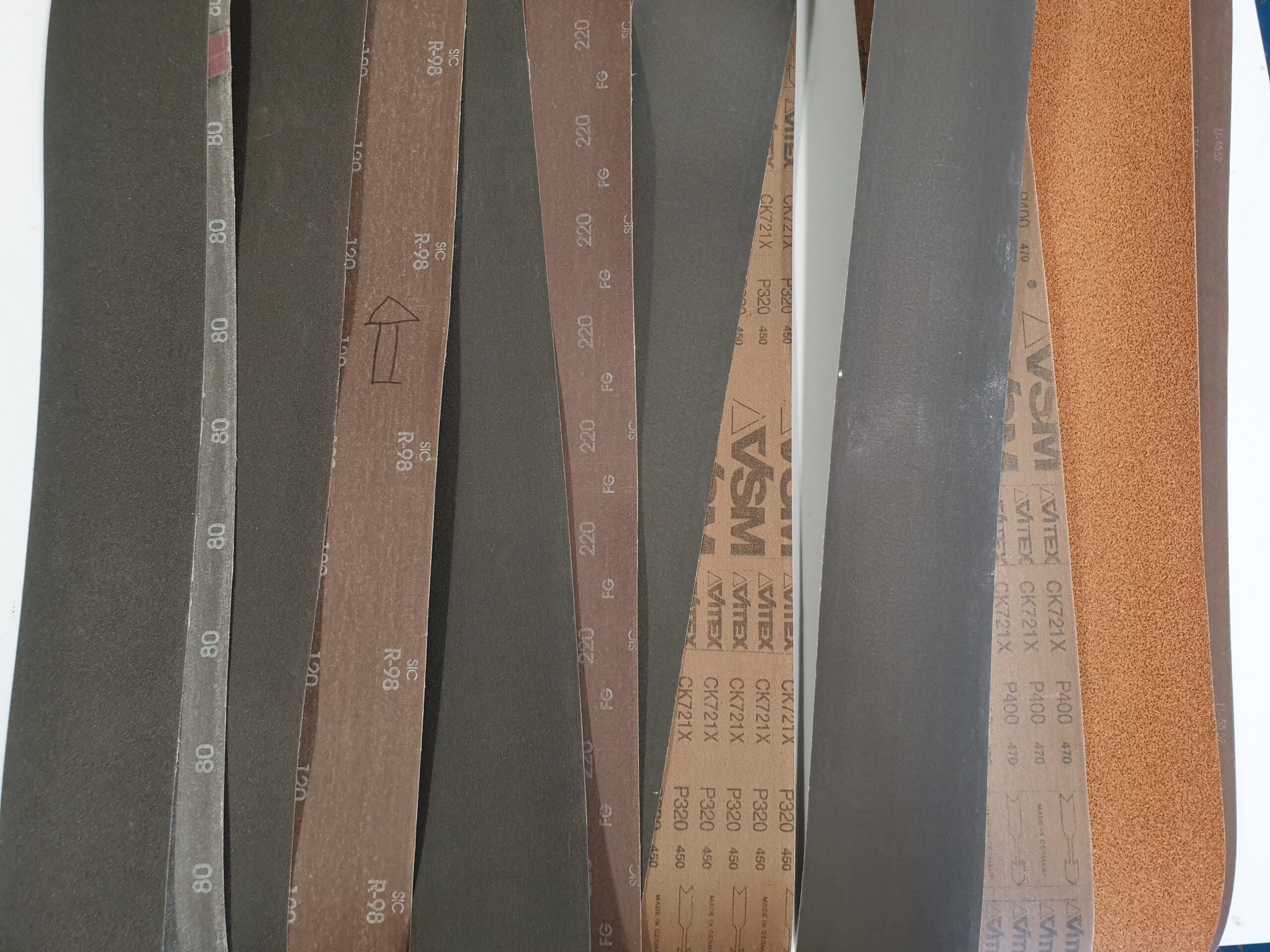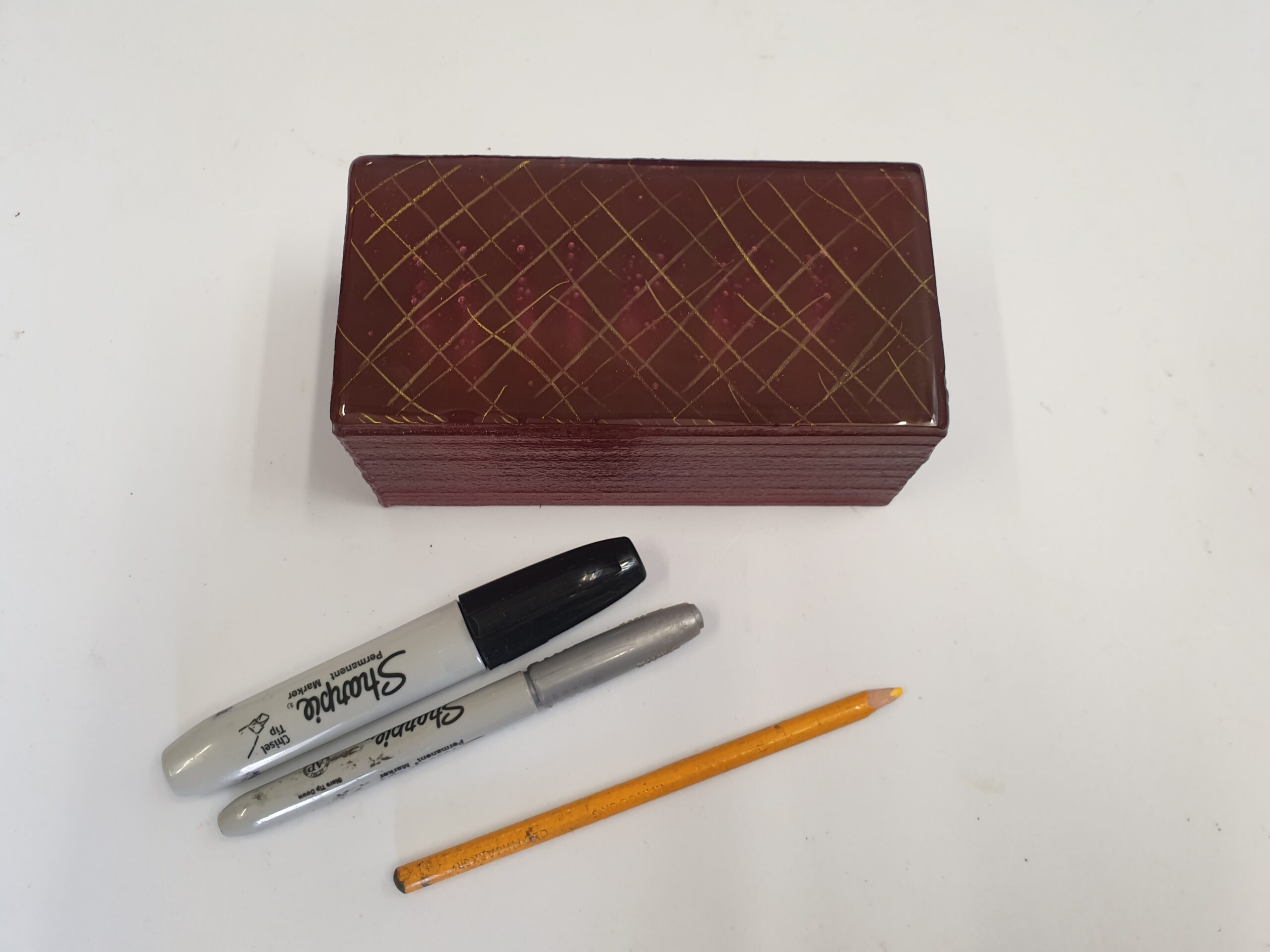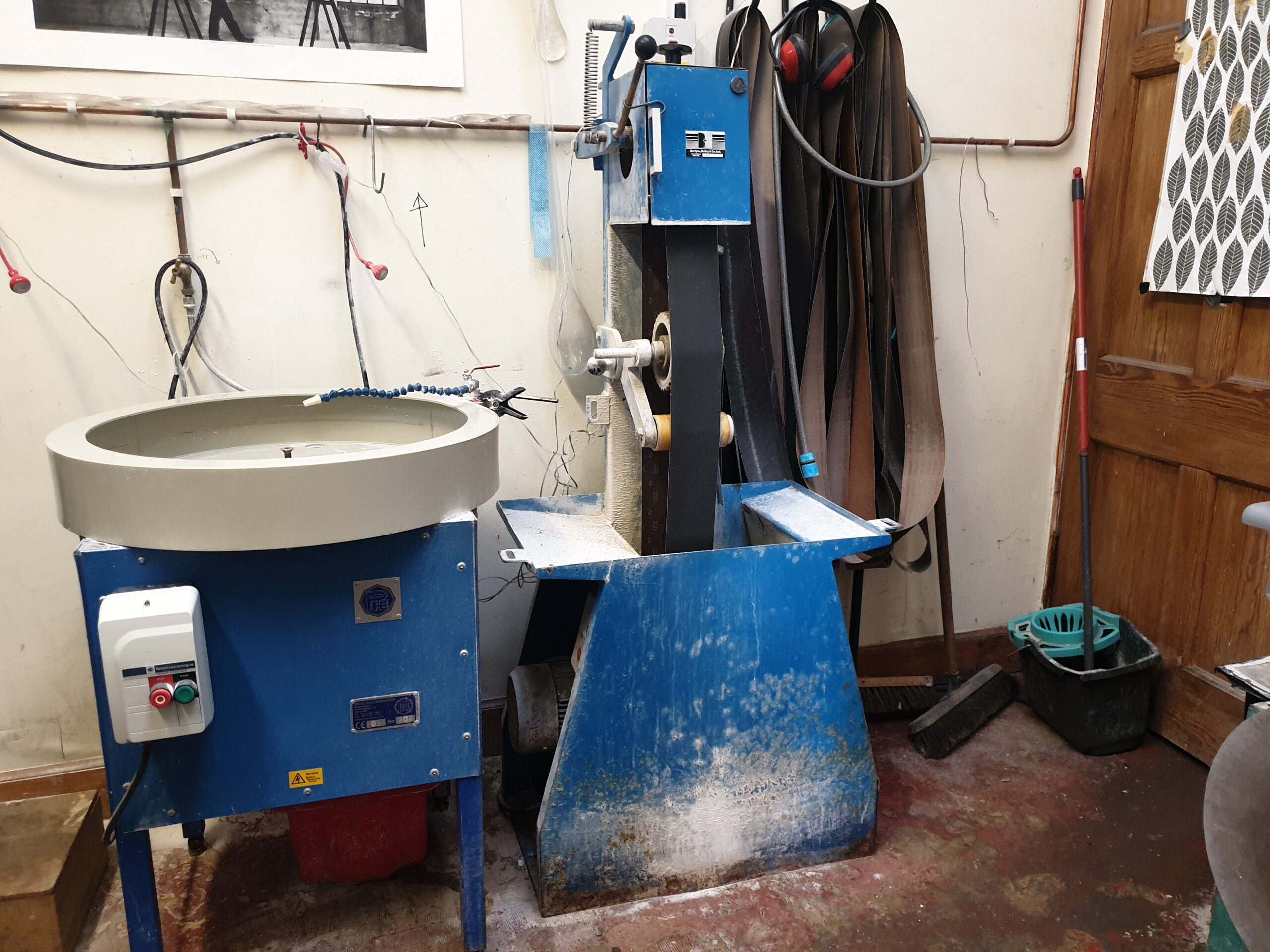Properties & Qualities
Application
Product, Sculpture, Other
Qualities
3D, Polished, Shiny, Smooth
Colour
Other
Sample Information
Date of creation
26/08/2023
Culture & Context
Linnishers (or belt sanders) are machines used to cold-work glass using water-fed belts that are usually coated in different grades of silicon carbide. They can also have a cork, felt, resin or diamond plated coating. They are usually used to remove material from curved surfaces, or to bevel flat edges.
Recipe Details
When setting up the machine, start with the appropriate belt for the job needed. Start with a rougher grade such as 60, 80, 100 / 120 if there is a lot of material to remove as these will take away more glass more quickly. Loop the belt onto the machine, ensuring that it is running straight, and that any arrows on the back of the belt are in line with the direction of travel, i.e. up at the back and down at the front of the linnisher. Tighten the tension if this is required by the particular machine. Check that the water feed is coming through onto the width of the belt, adjusting if necessary or topping up the water if it is a recirculating pump. The machine must always have a continuous water feed to keep the glass cool and prevent cracking from thermal shock. When introducing your glass piece to the belt, ensure it is at a downward angle to prevent it catching and move the piece across the width of the belt so that it doesn’t wear down unevenly. Once you have achieved the desired shape or smoothness, rinse and dry the glass and change to a finer grade belt. You can mark the area of the glass that you need to work on using a permanent marker or wax (chinagraph) pencil. Continue this process through the belts, checking between each one that you have achieved an even surface texture. If you require a polished surface you can use a cork belt, after you have used a 400-600 grade belt. Cork belts are best soaked in water before use to ensure they are fully saturated. A slurry of pumice powder and water may be used along with the cork belt (however be aware that many linnishers pump their water back through, so this will remain in the water). You can also get specialist polishing belts such as felt impregnated with pumice or cerium oxide. You may need to move to a different machine such as a felt or cork wheel used with pumice or cerium for a final polish.
Credits
Craft Maker
Vicky Higginson
Library Contributor
Vicky Higginson
Photographer
Vicky Higginson




















